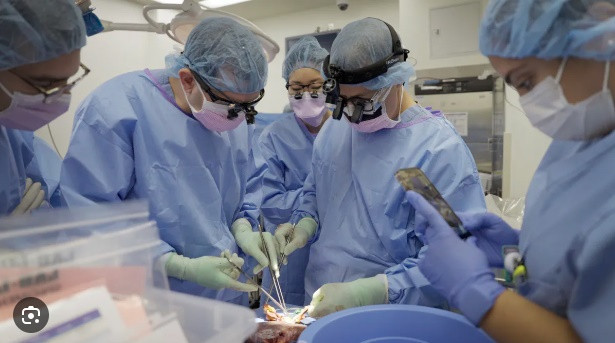On September 14, surgeons at the New York University Langone Transplant Institute (USA) performed a genetically modified pig kidney transplant on a brain-dead patient and announced that they had completed a record-breaking survival time experiment: 61 days.

This latest experimental procedure is part of a growing field of research aimed at advancing xenotransplantation, largely testing the technique on bodies donated to science.
There are over 103,000 people waiting for organ transplants in the United States, of which 88,000 need kidney transplants.
“We have learned a lot in the past two months of observation and analysis, and there are many reasons to be hopeful about the future,” said Robert Montgomery, director of the Langone Institute in New York, who led the surgery.
This is the fifth interspecies organ transplant performed by Mr. Montgomery. He also performed the world's first genetically modified pig kidney transplant in September 2021.
In this trial, the tissue collected showed mild rejection had begun, requiring increased use of immunosuppressive drugs. By “knocking out” the gene responsible for making a biomolecule called alpha-gal—a prime target for human antibodies—the Langone team was able to stop the rejection immediately.
The pigs donated for this experiment are from a herd raised by the Virginia-based biotech company Revivicor, which has also been approved by the U.S. Food and Drug Administration (FDA) as a source of meat for people who are hypersensitive to the molecule alpha-gal, an allergy caused by tick bites. The pigs are bred, not cloned, which means they can be scaled up more easily.
Early xenotransplantation research focused on harvesting organs from primates. In 1984, a baboon heart was transplanted into a human infant, but the baby only survived 20 days. Current efforts focus on pigs, which are considered ideal donors for humans because of their organ size, rapid growth rate, and rapid litter size, along with the fact that they are already raised as a food source for humans.
In January 2022, surgeons at the University of Maryland School of Medicine performed the world’s first pig organ transplant into a living human; the transplanted organ was a heart. The patient died two months after this milestone, reportedly due to the presence of porcine cytomegalovirus in the transplanted heart.
Last week, Chinese scientists announced that they had successfully grown kidneys containing human cells inside pig embryos, a potential solution to the shortage of transplant organs. However, experts have warned of ethical issues, especially when some human cells were found in pig brains.
According to Tin Tuc newspaper